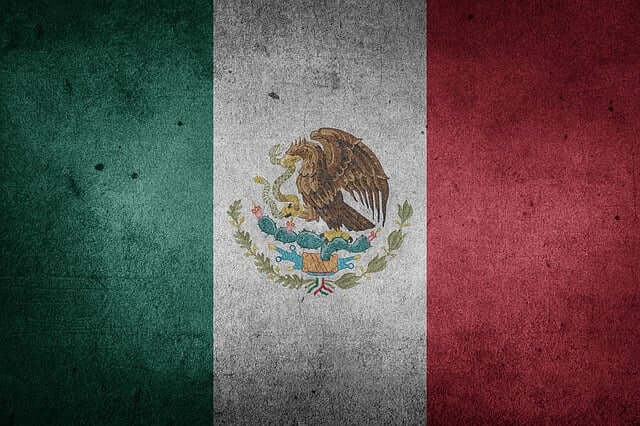10 Dark Facts About Mexico: Unveiling the Shadows
Mexico, a country renowned for its rich culture, breathtaking landscapes, and delicious cuisine, also harbors a shadowy side often concealed from the world’s gaze. In this article, we embark on a journey to uncover ten lesser-known aspects of Mexico – the dark truths that coexist alongside its vibrant tapestry.
1. Mexico’s Drug Cartel Violence
The ominous specter of drug cartel violence looms large over Mexico, leaving a trail of destruction in its wake. Recent statistics reveal a troubling reality – Mexico is home to some of the most powerful and ruthless drug cartels in the world, including the notorious Sinaloa and Jalisco New Generation cartels. These criminal organizations are responsible for a significant portion of the illegal drug trade, not only within Mexico but also in the United States and beyond.
Drug-related violence has reached alarming levels in Mexico. [Mention statistics], with tens of thousands of lives lost each year due to cartel conflicts, territorial disputes, and drug-related crimes. The Mexican government has launched extensive efforts to combat this menace, including military operations and law enforcement crackdowns. Despite these efforts, the drug trade persists, leaving a lasting scar on the country’s social fabric.

2. Corruption and Governmental Challenges
Political corruption runs deep in the veins of Mexico’s governance, posing a substantial barrier to progress and development. Corruption scandals have rocked the nation, involving high-ranking politicians and government officials. The infamous “El Chapo” Guzmán trial exposed links between drug cartels and Mexican politicians, shedding light on the extent of corruption within the system.
While Mexico has made efforts to combat corruption, including the establishment of specialized anti-corruption agencies and legislative reforms, the problem remains deeply entrenched. Public trust in government institutions continues to erode, hindering Mexico’s ability to address its pressing challenges effectively.
3. High Crime Rates and Kidnappings
Mexico’s diverse regions wrestle with alarmingly high crime rates, with kidnappings being an acute concern. Kidnappings for ransom, often perpetrated by criminal organizations, pose a constant threat to both locals and tourists. Recent examples include [include recent examples and statistics], underscoring the urgency of addressing this issue.
Efforts to combat kidnapping and other forms of violent crime include the deployment of federal security forces to affected areas and the establishment of specialized anti-kidnapping units. However, challenges persist, as criminal organizations adapt to law enforcement measures, making it essential for Mexico to pursue holistic solutions that address the root causes of crime.
4. Poverty and Income Inequality
Behind Mexico’s economic prowess lies a stark reality – pervasive poverty and stark income inequality. While Mexico is home to some of the world’s wealthiest individuals, a significant portion of its population struggles to make ends meet. [Include data on poverty rates and income distribution], highlighting the stark disparities.
Income inequality has deep historical roots in Mexico, dating back to the colonial era and exacerbated by decades of economic policies that favored the elite. Efforts to address this issue include social welfare programs and labor reforms aimed at improving the living conditions of the country’s most vulnerable citizens. However, bridging the wealth gap remains a formidable challenge.
5. Human Rights Violations
Reports of human rights violations cast a grim shadow over Mexico’s reputation on the global stage. Cases of enforced disappearances, extrajudicial killings, and torture have been reported, often involving law enforcement and security forces. [Mention recent incidents and international reactions], emphasizing the need for comprehensive reform.
The Mexican government, in partnership with human rights organizations, has taken steps to address these violations. Initiatives include the establishment of the National Human Rights Commission and legal reforms aimed at protecting human rights. However, the persistence of these abuses underscores the necessity of sustained efforts to uphold human rights in Mexico.
6. Environmental Concerns
Environmental challenges, including pollution and deforestation, demand immediate attention. Mexico’s rapid industrialization and urbanization have taken a toll on its natural environment, leading to issues such as air and water pollution, habitat destruction, and the depletion of natural resources. [Discuss recent efforts to address these issues], emphasizing the significance of preserving Mexico’s natural treasures.
Recent initiatives include stricter environmental regulations and conservation projects aimed at protecting Mexico’s unique biodiversity. However, these efforts must contend with the powerful forces of industrial interests and a growing population’s demands, highlighting the need for sustainable development practices.

7. Education Challenges
The Mexican education system faces multifaceted challenges, impacting the future of the nation’s youth. Recent statistics show that a substantial portion of Mexico’s population lacks access to quality education, with rural areas and marginalized communities disproportionately affected. Additionally, standardized test scores in Mexico lag behind those of many other countries in the region, indicating room for improvement in the quality of education provided.
Efforts to address these education challenges include recent reforms aimed at improving teacher training and curriculum standards. The Mexican government has also launched programs to enhance access to education in underserved areas. However, bridging the education gap and providing equal opportunities for all remains a complex and ongoing endeavor.
8. Healthcare System Issues
Within the healthcare sector, systemic issues persist, affecting the well-being of millions of Mexicans. Mexico has both public and private healthcare systems, but disparities in access and quality are evident. Public healthcare services are often underfunded, leading to long wait times and inadequate care in some cases. [Mention any recent healthcare developments or reforms], indicating the importance of accessible and high-quality healthcare for all citizens.
Recent healthcare reforms have sought to address these issues by expanding access to healthcare services and improving infrastructure. Initiatives such as Seguro Popular aimed to provide health coverage to previously uninsured citizens. However, the road to achieving universal healthcare and ensuring equitable access to quality medical services remains challenging.
9. Gender-Based Violence
Mexico grapples with a concerning wave of gender-based violence and femicide, which has gained international attention in recent years. Tragic cases of femicide, where women are targeted and murdered because of their gender, have highlighted the urgent need for action. [Include recent cases and initiatives], spotlighting the urgent need for gender equality and safety.
To combat gender-based violence, Mexico has implemented legal reforms, established gender violence prevention programs, and increased awareness campaigns. Nevertheless, cultural norms and deeply ingrained gender inequalities continue to pose significant challenges, requiring long-term efforts to change attitudes and behaviors.
10. Cultural Heritage Threats
Even Mexico’s cultural heritage is not immune to threats, including looting and vandalism. The country’s rich history, archaeological sites, and artistic treasures are targeted by both organized criminal groups and opportunistic thieves. [Discuss recent preservation efforts], underscoring the importance of safeguarding the nation’s cultural treasures.
Mexico has made strides in preserving its cultural heritage through stricter regulations, enhanced security measures, and international collaborations. However, the illicit trade in cultural artifacts remains a global issue that necessitates ongoing vigilance and cooperation.

Conclusion
While Mexico’s allure is undeniable, it’s imperative to acknowledge the complexities that lie beneath the surface. By shedding light on these ten dark facts, we hope to promote awareness and encourage collaborative efforts to address these pressing issues. Understanding these dark truths is only the first step. To truly transform Mexico’s challenges into opportunities, it will require a collective commitment from its citizens, its leaders, and the global community.
Mexico’s resilience and its capacity for positive change offer hope for a brighter future. By confronting these challenges head-on and working together, Mexico can continue to build a more just, equitable, and prosperous society for all its citizens. It’s in this collective effort that Mexico’s true potential will shine through, ensuring that the shadows are gradually replaced with the warmth of progress and hope.
So we hope that this information on fun facts about mexico will help you and if you want to see the blog in video format visit our youtube channel also do Check our other blogs related to travel guides, things to do, does it snow, best places to visit, best casinos, best waterfalls and abandoned places to visit.

